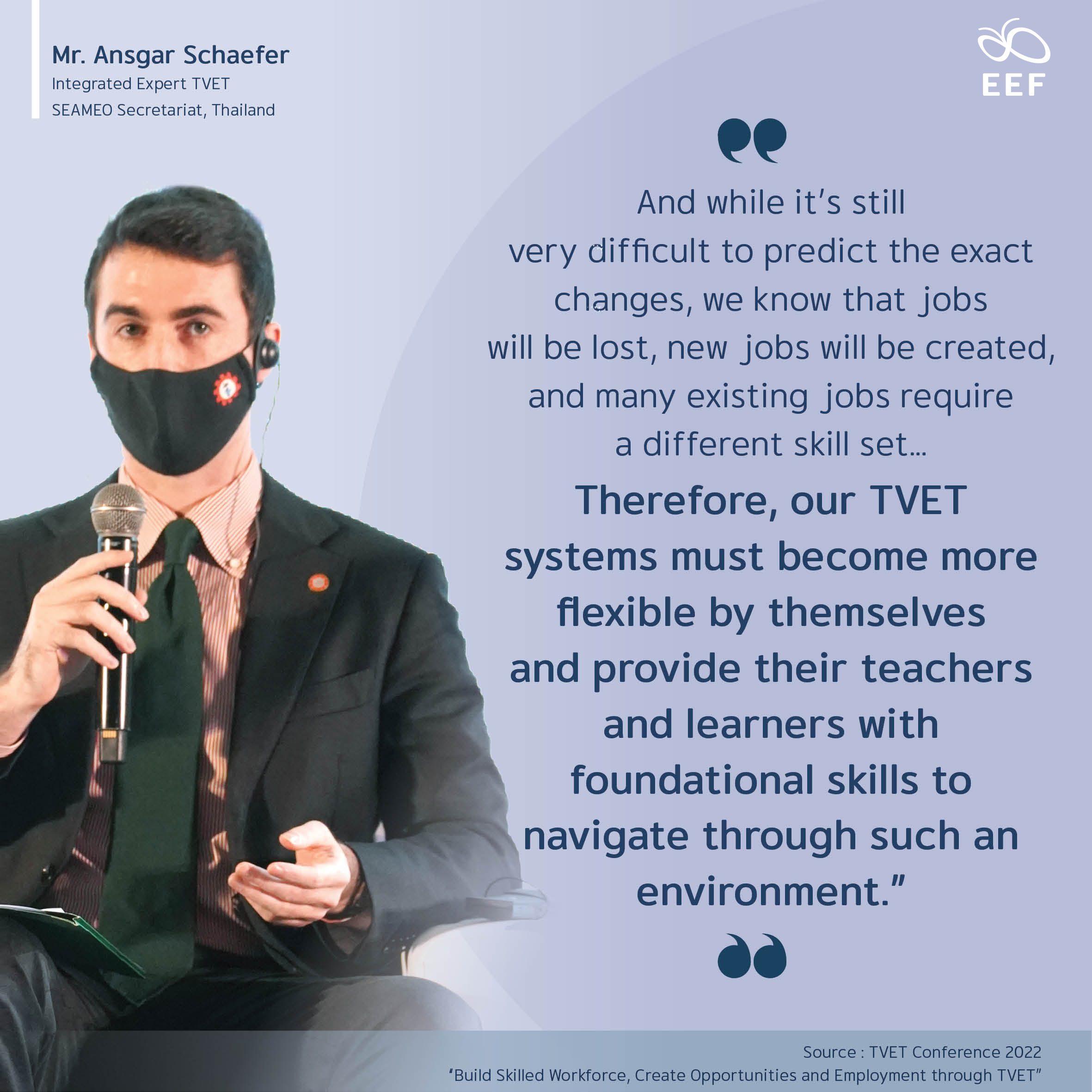
A Regional Perspective on Building Better TVET Systems
By Mr. Ansgar Schaefer, Integrated Expert TVET, SEAMEO Secretariat, Thailand

Currently, workforce development systems around the world are challenged by several trends of change, such as globalization, economic transformation, business automation, digitalization, etc. The COVID-19 pandemic and global warming have been significant factors accelerating such changes. COVID-19 forced the TVET systems to move most of their operations, including teaching and learning, to digital formats. Climate change has compelled several industries to shift to digital production channels in order to reduce carbon emissions. These trends bring about the need for new skills, especially digital skills, in order for the workforce to handle new technologies in the future. Moreover, these changes are predicted to take place faster and faster, which emphasizes the urgency of building skills for the future of work.

A 2021 study on workforce development readiness in South East Asia conducted by SEAMEO, shows that the readiness of the region’s TVET systems to handle the future of work is far behind where it is supposed to be. The study focuses on four main areas: 1) professional development of teaching personnel, 2) implementation of digital technology in real-life teaching and learning, 3) modernization of human resource development programs, and 4) integration of future skills into curricula, teaching, learning, and assessments. TVET systems should emphasize the development of these four areas. The technological transformation takes place in a continuous, fast, and unpredictable manner. Therefore, the key to developing the TVET systems is not to seek resources and play catch-up with such changes but to build the foundation for the teachers, learners, and workforce to prepare them for future changes before they even take place.
To build such a foundation, TVET systems should focus on building foundational future skills such as cognitive skills, skills involving information and communication technologies, the ability to learn and keep learning, communication and social skills, computational thinking, and problem solving in complex circumstances. TVET systems should also strive to collaborate with all sectors of industry by establishing networks with businesses to co-provide education and training. Businesses are the best at knowing what skills are needed and have more agile access to technologies than general TVET institutions.
Source:

